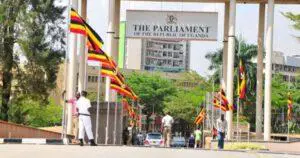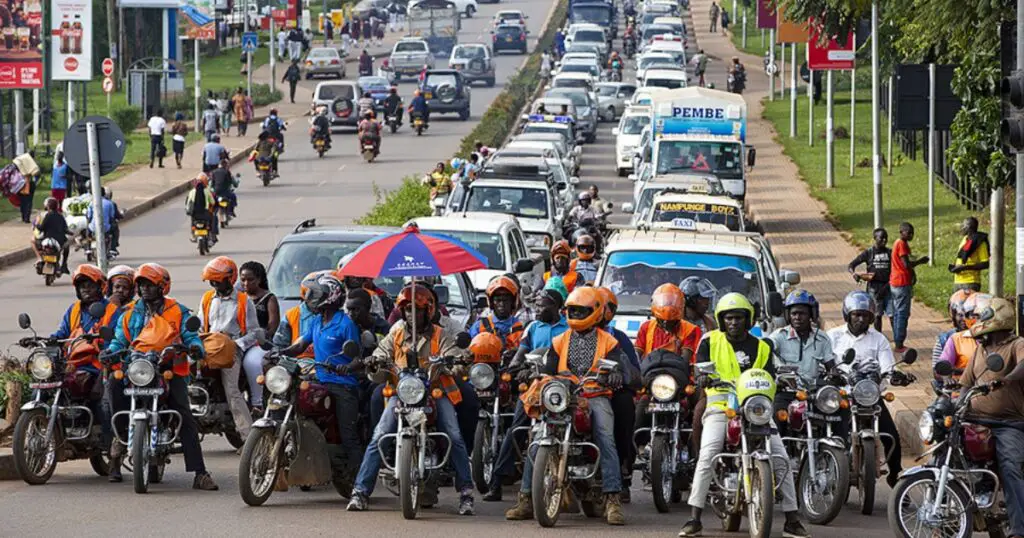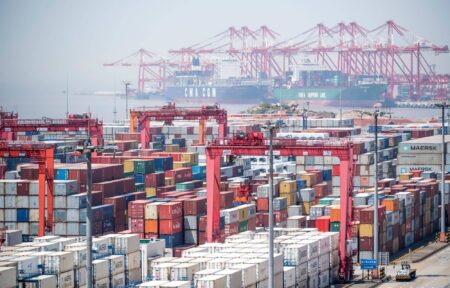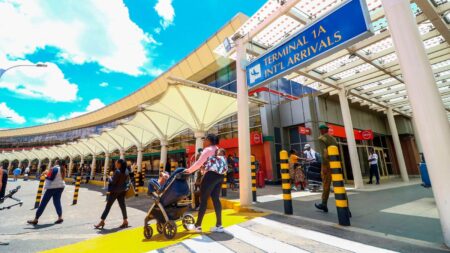- The Kampala Capital City Authority (KCCA) decongest the Central Business District (CBD) by removing boda boda riders and reducing public service vehicles
- Tororo District Woman Member of Parliament, Sarah Opendi said the CBD needs to have less motorised activity
- Stella Atyang (NRM, Moroto District) suggested that KCCA needs to build tram lines where the drainage channels run as one way to decongest the city
The parliament in Uganda has tasked the Kampala Capital City Authority (KCCA) to decongest the Central Business District (CBD) by removing Boda Boda riders and reducing public service vehicles.
In a meeting of the Committee on Physical Infrastructure, Tororo District Woman Member of Parliament, Sarah Opendi said the CBD needs to have less motorised activity.
“This report is silent about the boda boda riders. What is the plan? Should they be left to work outside the CBD?” Opendi asked.
She noted that over the years, KCCA has done nothing to consider the sidewalks for pedestrians.
“KCCA focuses more on constructing roads for cars and does not cater for pedestrians. They do not consider road safety at all yet we have so many accidents in this city. Prioritise road safety especially the walkways,” she said.
Stella Atyang (NRM, Moroto District) suggested that KCCA needs to build tram lines where the drainage channels run as one way to decongest the city.
Kenya’s fair trade coffee attracts lucrative Cannabis market
“Most of the drainage systems are open. Can we consider building trams on top of Nakivubo channel so that cars are left at around Kibuye roundabout so that the CBD is left with limited traffic,” she said.
Hon Moses Kabuusu (FDC, Kyamuswa County) said that delayed road repairs are another cause of traffic congestion in the city.
“When a road gets a pothole and needs repair, they dig it up, causing more damage and eventually the road get dilapidated completely. Why do you dig up these potholes with no hope of filling them up immediately?” he asked.
The Deputy Executive Director KCCA, David Ssali Luyimbazi, said decongestion of Kampala will be done by removing vendors and boda boda from the CBD.
“We shall prioritise the walkways as we plan for the roads; we plan to get the roadside vendors off the streets and all taxis back to the old taxi park,” he said.

The Minister of State for Kampala Capital City and Metropolitan Affairs, Kyofatogabye Kabuye said there are plans where the public service vehicles will be moved from the CBD to the outskirts.
“We shall start by making sure that the buses that travel upcountry stop in areas outside Kampala. For example, those on Gulu highway will stop at Bwaise, those from Masaka and Mbarara will stop at Natete while those from Jinja will stop at Banda. We do not need to buy land since there are parks designated in these areas,” he said.
In a related story, the parliament in Uganda was recently warned that unless the budget shortfalls of the ministry are addressed, projects under the works sub-sector in the National Development Plan (NDP) III would not be implemented timely.
“It will be difficult to start new projects before completing the ones that were started,” the Minister of Works and Transport, Edward Katumba Wamala said.
Katumba Wamala was appearing before the Committee on Physical Infrastructure on Thursday, 13 January 2022 to respond to issues raised in Budget Framework Paper (BFP) for Financial Year 2022/2023.
He said that majority of the running projects are being undertaken in arrears, saying that some projects have suffered major budget cuts.
“We are not paying contractors. If we continue like that, it will be difficult to meet our targets,” he said.
The minister informed the lawmakers that the government is losing approximately Shs123 million weekly in loan interest payments.
“There are some contracts which we committed to Uganda National Roads Authority, and we even scheduled some because we were promised money but we have not seen the money. If this is how we are going to proceed, even this BFP or whatever plans we have will not help,” the minister said.











